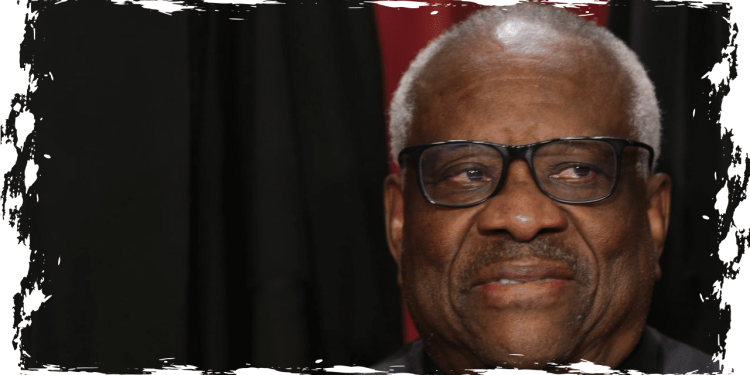In a decision that was widely supported, the Supreme Court confirmed on Friday that the federal ban on gun ownership for individuals who have been subjected to a domestic violence restraining order is constitutional. Justice Clarence Thomas was the only dissenter in the ruling.
According to the majority opinion, if a court determines that an individual poses a genuine danger to someone’s physical well-being, they may be temporarily disarmed in accordance with the Second Amendment. Throughout history, firearm regulations have included measures to prevent individuals who pose a risk of physical harm to others from misusing firearms.
In 2020, Zackey Rahimi, a drug dealer from Texas, was issued a restraining order by the court. This was a result of his assault on his then-girlfriend in a parking lot. The two-year order prohibited Rahimi, who is currently incarcerated, from making any contact with his ex-girlfriend or her family. Additionally, he was not allowed to possess any firearms during the period of the restraining order.
Despite arguing that his Second Amendment rights had been infringed upon, Rahimi chose to disregard the court’s ruling. As per a prior filing, Rahimi was linked to five additional shootings in the Arlington vicinity.
Rahimi received an indictment, conviction, and a six-year prison sentence.
In February 2023, Judge Cory T. Wilson, who was appointed to the bench by former President Donald Trump, vacated Rahimi’s conviction in the 5th U.S. Circuit Court of Appeals. Known for his strong anti-gun control views, Wilson posed a thought-provoking question in his ruling: “Should individuals who violate traffic laws, political nonconformists, or those who fail to recycle or drive electric vehicles be stripped of their right to keep and bear arms?”
According to Wilson, Rahimi, although not the most upstanding member of society, still belongs to the political community and is entitled to the protections granted by the Second Amendment, all things considered.
On Friday, Thomas expressed his dissent by stating that depriving a domestic abuser of their right to own a firearm based on a protective order is a violation of due process. He went on to explain that this action is a consequence that is automatic and cannot be contested in certain circumstances.
Justice Thomas argued that there is no chance for an individual to be heard on the applicability of the statute and a court is not obligated to determine whether a person should be disarmed under §922(g)(8). According to him, the only process required by the statute is the one provided, or not provided, for the underlying restraining order.
Thomas believes that the Second Amendment serves as a barrier that prohibits the Government from infringing on the right to keep and bear arms.
In his dissent, the author emphasized that the right to bear arms was considered crucial for preserving freedom by the Framers and the public who ratified the Constitution. He expressed concern that the decision, aimed at regulating a particular group, could endanger the Second Amendment rights of a much broader population. The author respectfully disagreed with the ruling.
Upon the court’s ruling, Letitia James, New York State Attorney General, released a statement expressing her support for the decision. She referred to basic gun laws as “commonsense guardrails” and applauded their implementation. James, along with a coalition of 25 attorneys general from different states in the U.S., submitted an amicus brief in the Rahimi case last year. The brief highlighted the fact that the presence of firearms in a home increases the likelihood of intimate partners being murdered by an abuser by five times.










